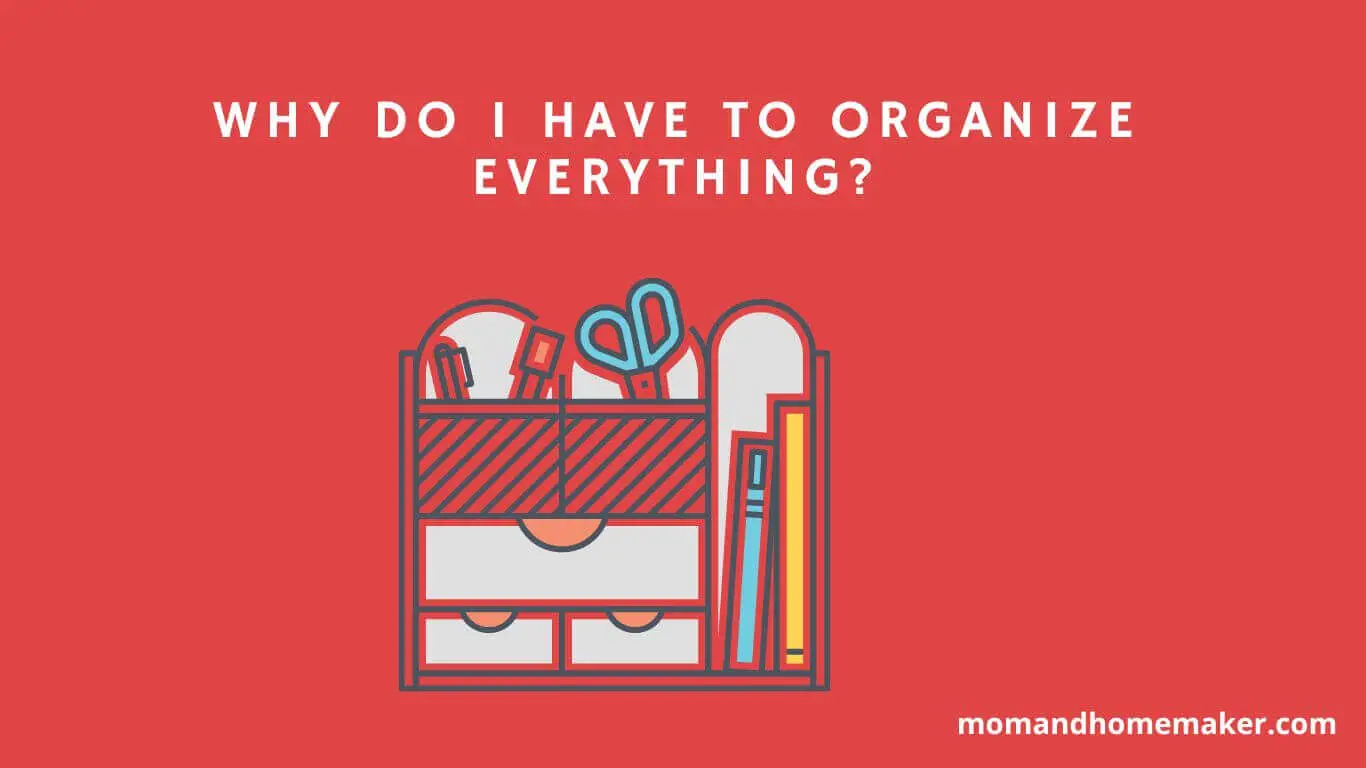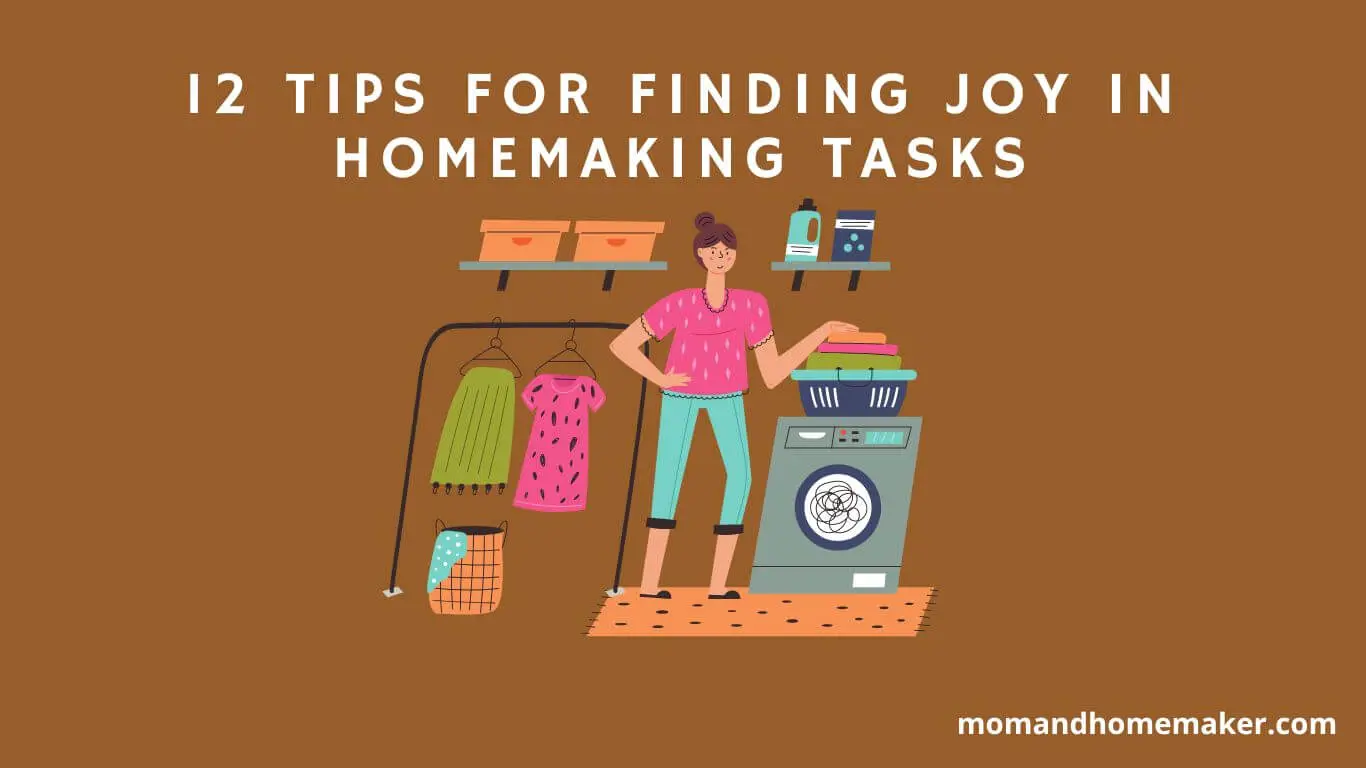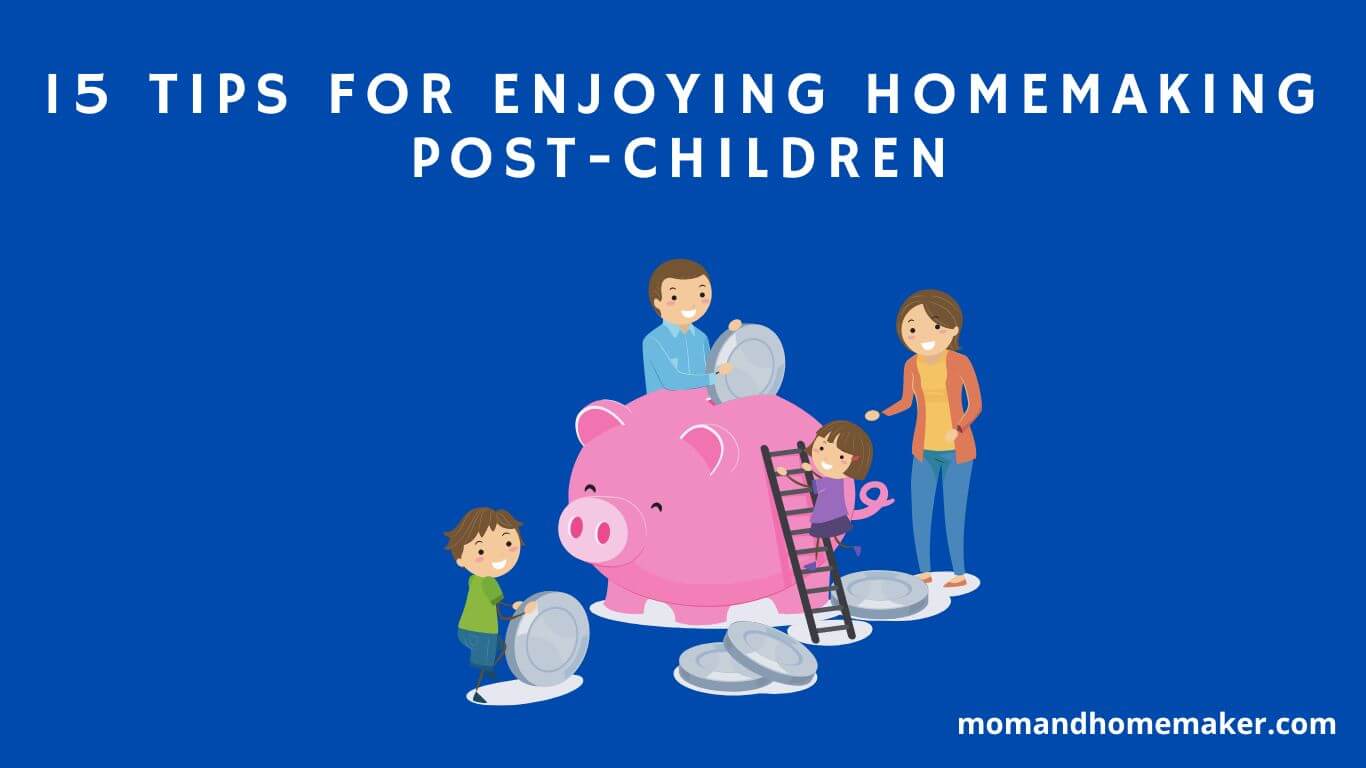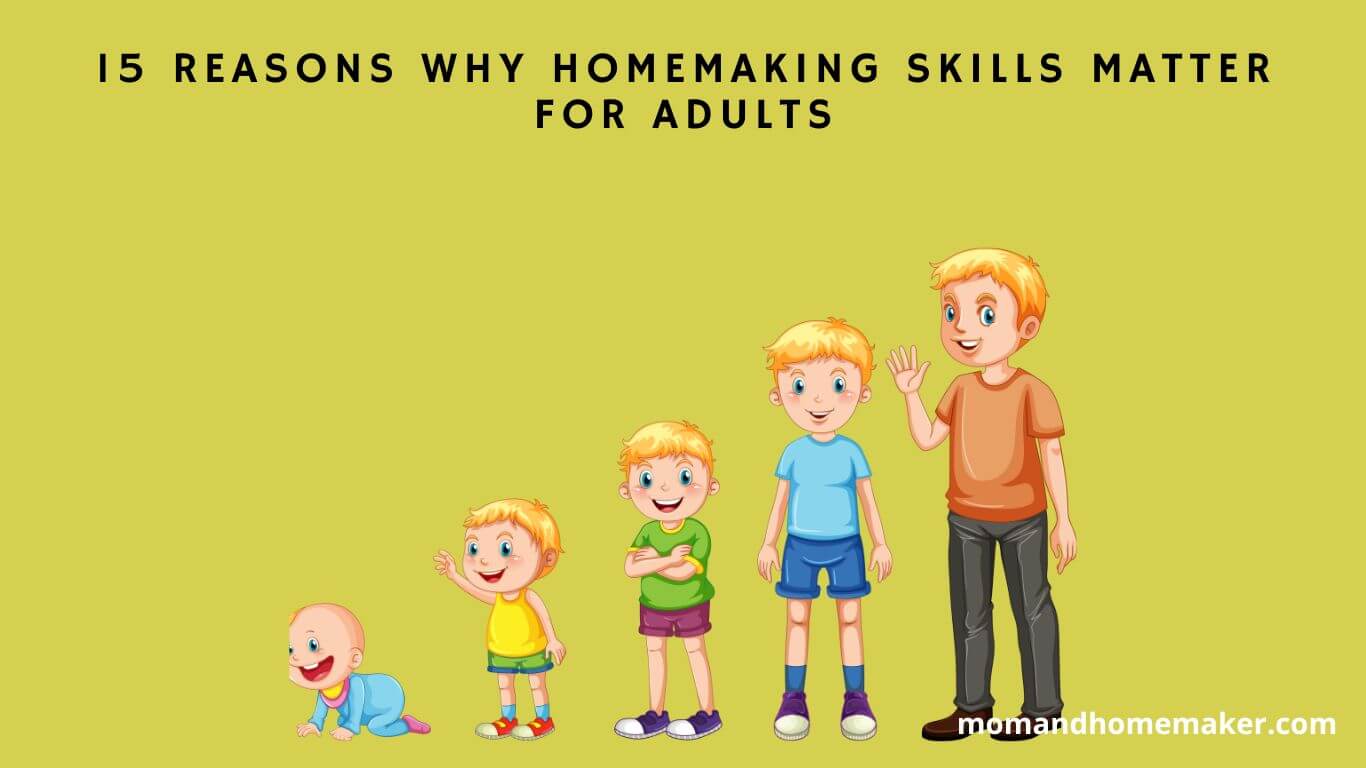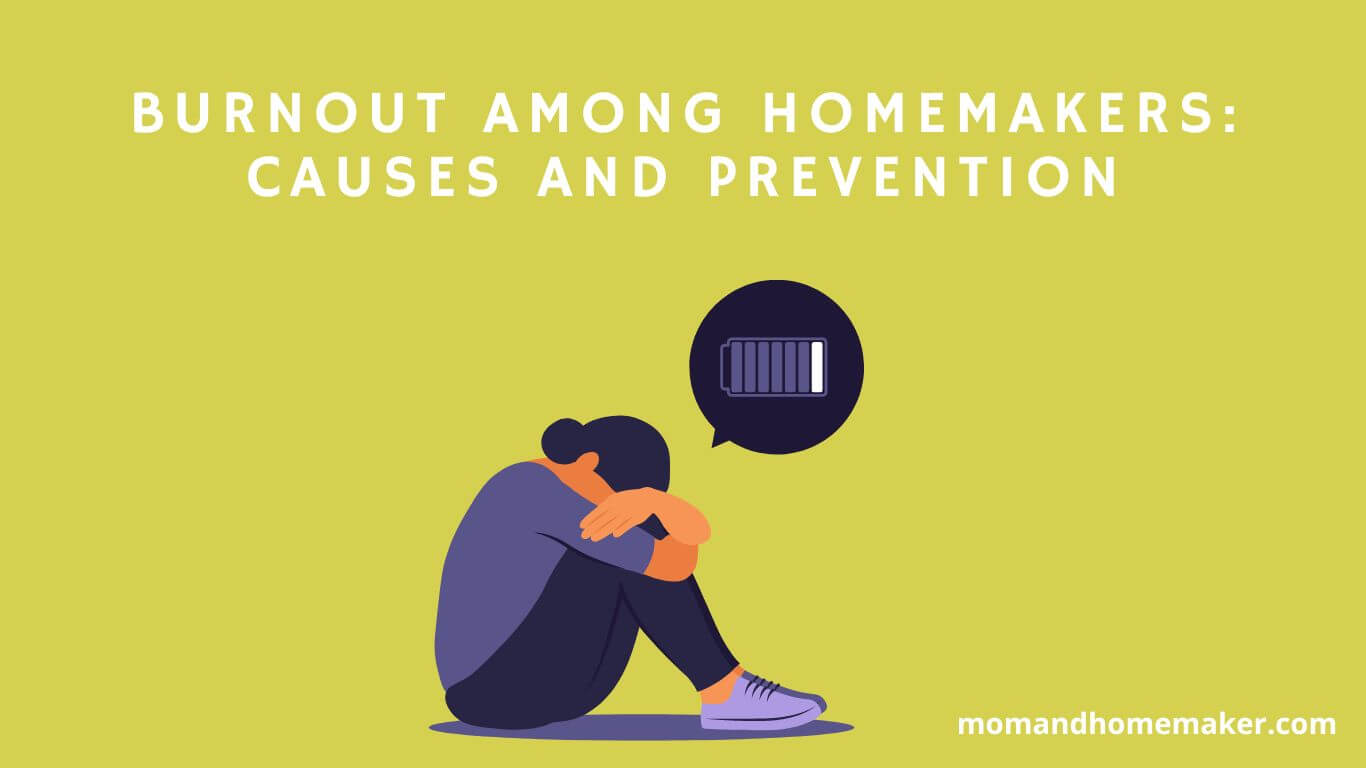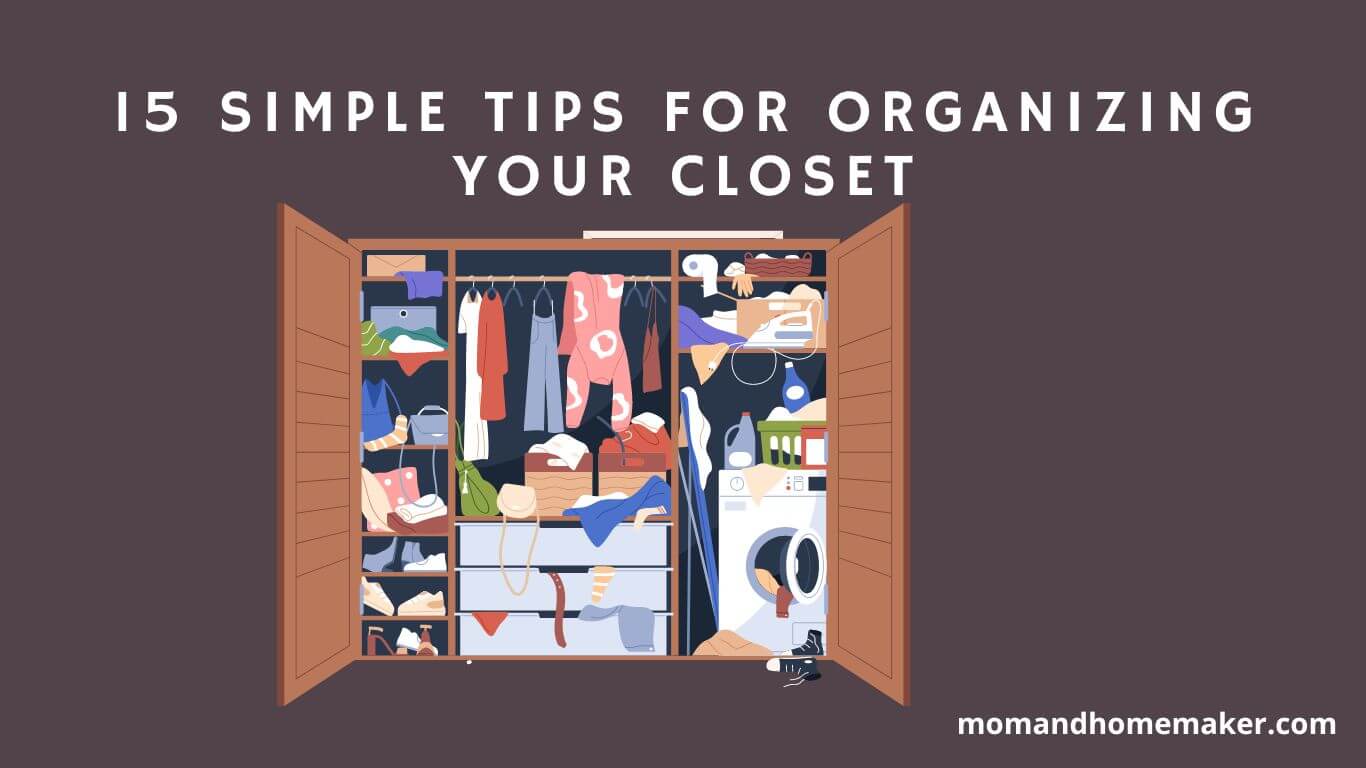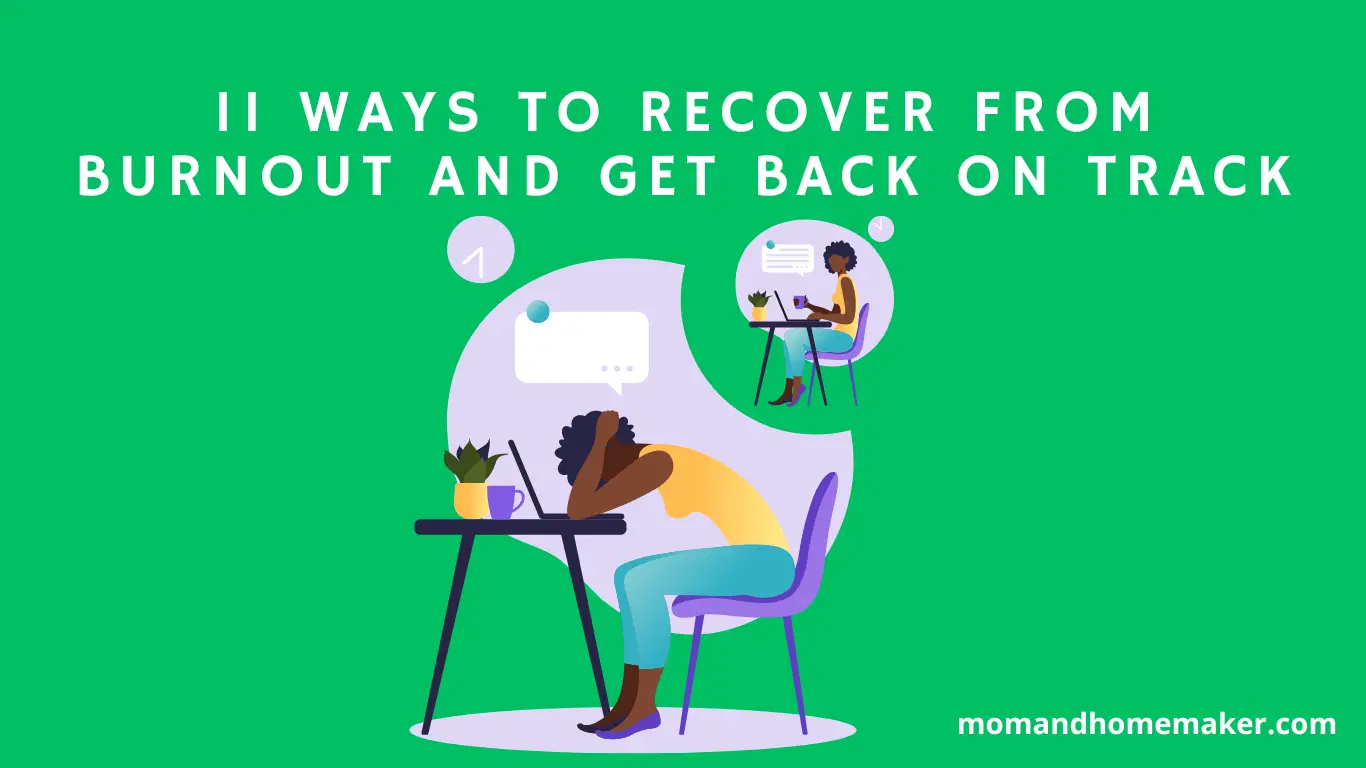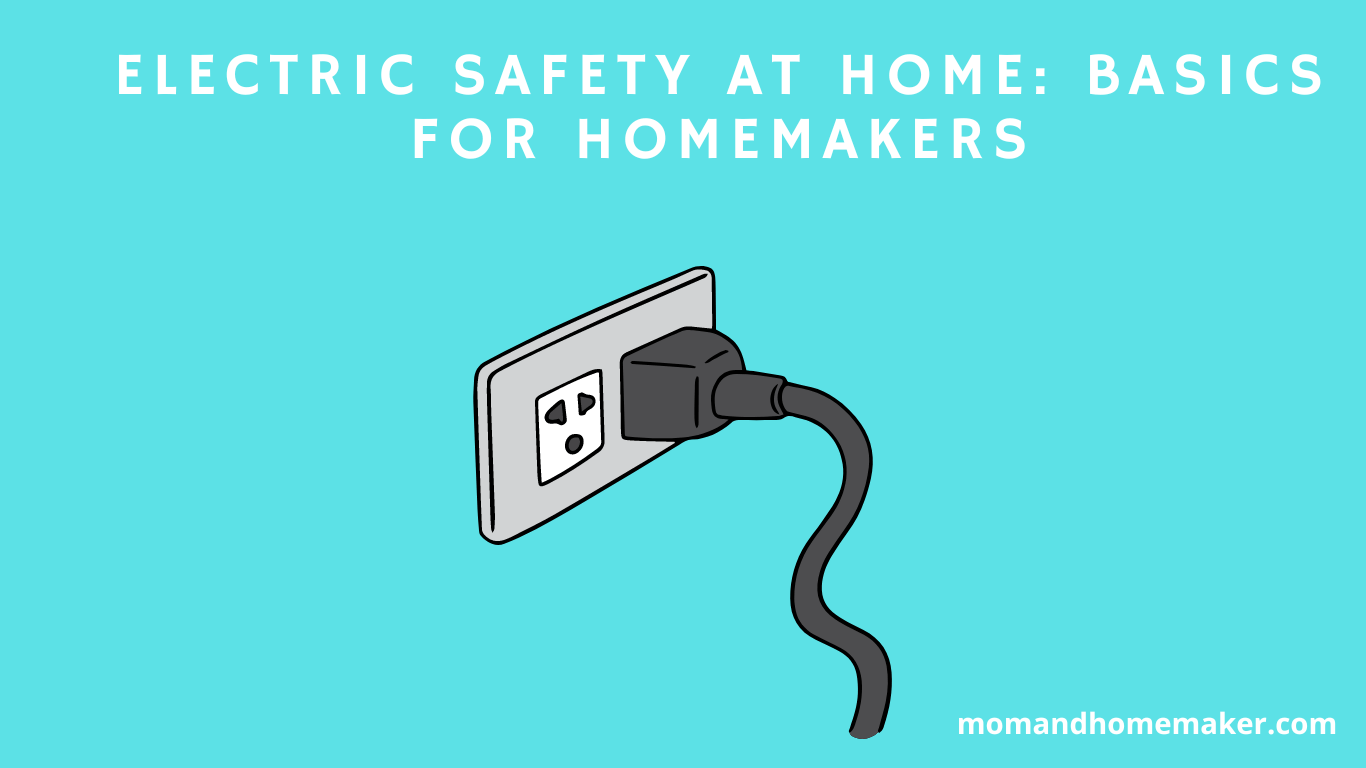Have you ever found yourself constantly organizing and decluttering your surroundings? Do you feel like you have to be in control of everything, from the placement of your pens on your desk to the arrangement of furniture in your living room?
You are not alone. Many people share this urge to organize and control their environment, but have you ever wondered why?
In this article, we will discuss the reasons behind this innate desire for organization. We will also look at how our brains are wired to seek order and structure, and how it affects our daily lives. Whether you are a neat freak or just someone who wants to understand why they feel compelled to clean up after others, this article is for you.
Table of Contents
The Urge For Control
Have you ever felt the urge to control everything around you? To make sure every detail is taken care of and nothing is left to chance? It’s a common feeling, especially for those who have a subconscious desire to serve others. We want to make sure everything is perfect so that we can meet the needs of those around us.
This need for control can manifest in many ways, from micromanaging tasks at work to obsessively organizing our homes. We feel that if we can just keep everything in order, we will be better equipped to handle whatever challenges come our way.
But sometimes, this urge for control can become overwhelming and lead us down a path of stress and burnout. It’s important to recognize that there is a difference between controlling our environment and being organized.
While organization can help us feel more in control, it’s not about trying to manipulate every aspect of our lives. In fact, sometimes the most effective way to serve others is by letting go of control and allowing them to take on more responsibility themselves.
The Connection Between Control And Organization
When we take control of our surroundings and prioritize what needs to be done, we gain a sense of power over our lives. This feeling of control can lead to increased productivity and success in all aspects of life.
Being organized allows us to focus on what truly matters. When we have a cluttered and disorganized space, it’s easy to get distracted by the chaos around us. By taking the time to declutter and organize, we are able to eliminate distractions and hone in on what needs our attention.
Organizing everything is about more than just having a neat and tidy space. It’s about taking control of our lives and creating an environment that supports our goals and aspirations. By prioritizing organization, we are able to live more intentionally and achieve greater success in all areas of life. And in the next section, we’ll explore some of the benefits that come with being organized.
The Benefits Of Being Organized
As the saying goes, ‘A place for everything, and everything in its place.’ This adage speaks to the importance of organization in our lives. When we take control of our surroundings and create order, we can free up mental space and feel less stressed.
While it may seem like a chore to constantly organize everything, the benefits are well worth it. Being organized can improve productivity and efficiency. With everything in its proper place, you can find what you need when you need it. This saves time and eliminates frustration. Being organized can help you prioritize your tasks and stay on track with your goals.
Here are three ways that being organized can positively impact your life:
- Reduced stress: Cluttered spaces can lead to cluttered minds. When your environment is chaotic, it’s easy to feel overwhelmed. Organizing your space can help calm your mind and reduce stress.
- Clearer thinking: When you don’t have to worry about where things are or what needs to be done next, you can think more clearly and make better decisions.
- Improved mood: Walking into a tidy room or opening a neatly organized drawer can bring a sense of satisfaction and happiness.
How Organizing Affects Your Mental Health
Organizing can have a positive effect on your mental health. It can reduce stress, increase productivity, and improve cognitive functioning.
1. Reduced Stress
As we go about our daily lives, it can be easy to overlook the importance of organization. Many people see it as a tedious task that they would rather avoid. However, organizing your surroundings can have a significant impact on your mental health.
One of the most significant benefits is reduced stress. When you are surrounded by clutter and chaos, it can be challenging to focus on anything else. The mess becomes a constant source of distraction and anxiety, making it difficult to relax or concentrate. By taking the time to organize your space, you can eliminate this source of stress and create a more peaceful environment.
Reducing stress through organization is particularly beneficial for those who struggle with anxiety or depression. When you feel like everything is out of control, having an organized space can provide a sense of stability and security. It allows you to better manage your emotions and cope with difficult situations.
In conclusion, the mental health benefits of organizing cannot be overstated. By reducing stress through organization, we create a more peaceful environment that helps us better manage our emotions and improve our overall well-being.
So instead of avoiding it, consider making organization a priority in your life – your mind will thank you for it.
2. Increased Productivity
When we have a cluttered workspace or home, it can be challenging to focus on tasks and complete them efficiently. We waste time searching for items we need, get distracted by the mess around us, and struggle to prioritize our work.
However, when we take the time to organize our environment, we create a space that is conducive to productivity. We know where everything is, which eliminates the need for frantic searches. We can concentrate better because there are fewer distractions around us. And we can prioritize our workload more effectively because everything is in its proper place.
Increased productivity through organization benefits not only ourselves but also those around us. If we are more productive at work, we may be able to complete tasks faster and take on additional responsibilities. If our home is organized, we can spend more quality time with family and friends instead of wasting hours cleaning up clutter.
In summary, organizing not only reduces stress but also increases productivity. By creating a clean and organized environment to work or live in, we can achieve much more than if we were surrounded by chaos and clutter.
Don’t underestimate the power of organization – it could be just what you need to unlock your full potential.
3. Improved Cognitive Functioning
Research has shown that cluttered environments can have a negative impact on our ability to think clearly and make decisions. When our surroundings are disorganized, it can be challenging to focus on tasks and process information efficiently.
On the other hand, when we organize our environment, we create a space that promotes clear thinking and improved cognitive functioning. We can concentrate better because there are fewer distractions around us, allowing us to complete tasks more effectively. Additionally, organizing requires us to use problem-solving skills and decision-making abilities, which helps keep our minds sharp.
Improved cognitive functioning through an organization not only benefits ourselves but also those around us. When we can think clearly and make decisions more effectively, we become better communicators and problem-solvers in both personal and professional settings.
Organizing not only reduces stress and increases productivity but also improves cognitive functioning. By creating an organized environment to work or live in, we promote clear thinking and decision-making skills that benefit ourselves and those around us.
The Impact Of Clutter On Your Mind
Not only does clutter affect your ability to focus, but it also creates a feeling of being overwhelmed. When there are too many things around us, it’s easy to feel like we don’t have control over our environment.
This can lead to feelings of helplessness and even depression. By taking the time to organize your space, you can alleviate these negative effects. You’ll feel more in control and less stressed, which will allow you to focus better and be more productive.
When everything has its place, it’s easier to find what you need quickly and efficiently.
How Organization Can Boost Productivity
Walking into a cluttered room can feel like walking into a maze. You spend more time trying to navigate through the mess than actually accomplishing your tasks. That’s why organization is crucial for productivity. When you have a clear space, you have a clear mind. Everything becomes easier to manage and access, giving you more time to focus on what really matters.
Here are three benefits of staying organized:
- Improved focus: A cluttered space can be distracting, making it harder to stay focused on the task at hand. When everything has its place, your mind can stay on track without being pulled in different directions.
- Time-saving: Have you ever spent hours looking for something that should have taken minutes to find? With an organized system, everything is easily accessible, saving you valuable time.
- Reduced stress: The feeling of being overwhelmed by disorganization can lead to stress and anxiety. By having an organized space, you create a sense of calm and control, which can help reduce stress levels.
If you’re someone who has an innate desire to serve others, then staying organized is not only beneficial for yourself but also for those around you. It allows you to be more efficient with your time and resources, ultimately enabling you to better serve others.
In the next section, we will explore the relationship between organization and time management. By understanding how these two concepts work together, you’ll be able to maximize your productivity and achieve your goals with ease.
The Relationship Between Organization And Time Management
It’s clear that being organized can help us achieve our goals more efficiently and effectively. But why do some of us struggle with organizing everything? Why does it sometimes feel like a chore?
The truth is, not everyone enjoys organizing. Some people find it tedious or overwhelming, while others simply don’t see the value in it. However, if you’re someone who wants to improve your time management skills and be more productive overall, then organization is key.
To better understand the relationship between organization and time management, let’s take a look at the table below:
| Messy Environment | Organized Environment |
|---|---|
| Cluttered | Clean |
| Distracting | Focused |
| Stressful | Calm |
As you can see, a messy environment can have negative effects on our productivity and mental state. When we’re surrounded by clutter and distractions, it’s harder to focus on our tasks and easier to feel stressed out. On the other hand, an organized environment can promote a sense of calmness and help us stay on track.
So if you’re struggling to stay organized, try setting aside some time each day to tidy up your surroundings. It may seem like a small step, but it can make a big difference in your overall productivity. In the next section, we’ll delve deeper into the role of environment in organization and how you can optimize your surroundings for success.
The Role Of Environment In Organization
The environment can have a huge impact on an organization, both positively and negatively. Knowing how to use environmental factors to your advantage can be the difference between success and failure.
Organizing strategies are key to making sure an organization is able to take advantage of the environment. A good strategy should take the environment into account, both in terms of external factors and internal ones.
It’s important to be aware of the environment, both local and global, to ensure that an organization is making the most of its resources. Taking the environment into consideration when organizing can help an organization to be more efficient and better prepared for any challenges it may face.
Environmental Factors In Organization
Our surroundings play a crucial part in shaping our habits and behaviors – whether it’s our home, workspace, or community. By taking into account the environmental factors that impact our ability to stay organized, we can create a more effective system for managing our tasks and responsibilities.
1. Consider the physical layout of our space.
Is the environment conducive to productivity? Does it facilitate collaboration with others? The way we arrange furniture, equipment, and supplies can have a significant impact on our ability to work efficiently. For example, having easy access to commonly used items can save us time and reduce frustration. Similarly, designing a workspace that promotes movement and reduces sedentary behavior can have positive effects on both physical health and mental focus.
2. The level of sensory stimulation present in our surroundings.
Too much noise or visual clutter can be overwhelming and distracting, making it difficult to concentrate on tasks at hand. On the other hand, a calming atmosphere with minimal distractions can help us maintain focus and reduce stress levels. This might involve removing unnecessary items from our workspace or using noise-canceling headphones to block out external sounds.
3. Social factors.
Do we have supportive colleagues or family members who encourage us to prioritize self-care? Are there negative influences in our community that make it harder for us to stick to healthy habits? By analyzing the social dynamics at play in our environment, we can identify areas where we need additional support or accountability.
In short, while individual efforts towards organization are important, they must also be supported by an environment that fosters productivity and well-being. Taking into account physical layout, sensory stimulation levels, and social dynamics can help us create a space that supports positive habits and behaviors – ultimately leading to greater success and fulfillment in our lives.
Organizing Strategies For Environment
A cluttered and disorganized environment can lead to increased stress levels and decreased productivity, so it’s crucial to establish organizational systems that work for us. How can you maintain an organized space? Here are a few strategies:
1. Declutter regularly.
This involves getting rid of unnecessary items that take up space and make it difficult to find what we actually need. By removing excess items, we create more physical and mental space for ourselves, allowing us to focus on the tasks at hand. Assigning a designated home for each item can help reduce clutter and make it easier to locate things when needed.
2. Incorporate visual aids.
For example, labeling containers or shelves with clear descriptions can make it easier to identify where items belong. Similarly, color-coding files or folders can help distinguish between different categories of information. Visual aids provide a quick reference point for finding what we need and serve as a reminder to maintain organization.
3. Establishing routines and habits.
This might involve setting aside time each day or week for tidying up or making a habit of putting things back where they belong after use. By consistently following these routines, we establish a sense of order in our environment that becomes second nature over time.
By implementing these strategies for maintaining an organized space, not only will you increase your productivity but you’ll also feel less stressed and more in control of your environment. However, it’s important to remember that organizing is an ongoing process and requires consistent effort.
4. Setting Goals
When setting goals, it’s important to make them specific, measurable, attainable, relevant, and time-bound (SMART). Specific goals help you focus on exactly what needs to be done while measurable goals allow you to track your progress. Attainable goals ensure that they’re realistic and achievable while relevant goals align with your overall objectives. Finally, time-bound goals give you a deadline to work towards.
By setting SMART goals for organization and productivity, you’ll have a clear plan of action that will help you stay on track. Whether it’s creating a cleaning schedule or prioritizing tasks based on urgency and importance, having specific objectives in mind will make it easier to accomplish what needs to be done.
Remember that setting goals isn’t just about achieving personal success but also about serving others better by being more organized and productive. By taking the time to set SMART goals for organization and productivity, you’ll not only improve your own life but also those around you by being more efficient with your time and energy.
The Importance Of Regular Decluttering
Regular decluttering is an essential aspect of being organized. It’s crucial to keep your surroundings free of unnecessary items, as it can help reduce stress levels and increase productivity. When you have a lot of clutter around you, it can be overwhelming and distracting, making it difficult to focus on the task at hand.
Decluttering doesn’t have to be a challenging task that takes up all your time. In fact, if you make it part of your routine, it can be a quick and easy process. You could start by setting aside 10-15 minutes every day to tidy up your living space. This could involve putting away things that are out of place or getting rid of items you no longer need.
Regular decluttering also helps cultivate a sense of gratitude and mindfulness in your life. When you take the time to appreciate what you have and let go of what no longer serves you, it allows for more space in your heart and mind for new opportunities and experiences.
Conclusion
Being organized isn’t just about having control over your surroundings, it’s about having control over your life. It may seem challenging at first, but trust me when I say that the benefits are worth it. Your mental health will thank you, your productivity will soar, and who knows? Maybe one day you’ll even become a millionaire because of your organizational skills.
Your future self will thank you for it. And if you need any motivation along the way, just remember: clutter is chaos and nobody has time for that mess.
Happy organizing!

